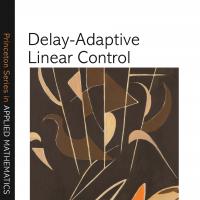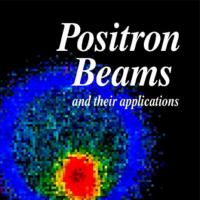by
Equal parts Sapiens, Behave, and Superintelligence, but wholly original in scope, A Brief History of Intelligence offers a paradigm shift for how we understand neuroscience and AI. Artificial intelligence entrepreneur Max Bennett chronicles the five “breakthroughs” in the evolution of human intelligence and reveals what brains of the past can tell us about the AI of tomorrow.
In the last decade, capabilities of artificial intelligence that had long been the realm of science fiction have, for the first time, become our reality. AI is now able to produce original art, identify tumors in pictures, and even steer our cars. And yet, large gaps remain in what modern AI systems can achieve—indeed, human brains still easily perform intellectual feats that we can’t replicate in AI systems. How is it possible that AI can beat a grandmaster at chess but can’t effectively load a dishwasher? As AI entrepreneur Max Bennett compellingly argues, finding the answer requires diving into the billion-year history of how the human brain evolved; a history filled with countless half-starts, calamities, and clever innovations. Not only do our brains have a story to tell—the future of AI may depend on it.
Now, in A Brief History of Intelligence, Bennett bridges the gap between neuroscience and AI to tell the brain’s evolutionary story, revealing how understanding that story can help shape the next generation of AI breakthroughs. Deploying a fresh perspective and working with the support of many top minds in neuroscience, Bennett consolidates this immense history into an approachable new framework, identifying the “Five Breakthroughs” that mark the brain’s most important evolutionary leaps forward. Each breakthrough brings new insight into the biggest mysteries of human intelligence. Containing fascinating corollaries to developments in AI, A Brief History of Intelligence shows where current AI systems have matched or surpassed our brains, as well as where AI systems still fall short. Simply put, until AI systems successfully replicate each part of our brain’s long journey, AI systems will fail to exhibit human-like intelligence.
Endorsed and lauded by many of the top neuroscientists in the field today, Bennett’s work synthesizes the most relevant scientific knowledge and cutting-edge research into an easy-to-understand and riveting evolutionary story. With sweeping scope and stunning insights, A Brief History of Intelligence proves that understanding the arc of our brain’s history can unlock the tools for successfully navigating our technological future.
Publisher : Mariner Books (October 8, 2024)
Language : English
Paperback : 432 pages
ISBN-10 : 0063286351
ISBN-13 : 978-0063286351
![]()
1、本站所有分享材料(数据、资料)均为网友上传,如有侵犯您的任何权利,请您第一时间通过微信(lib99net)、QQ(24661067)、电话(17898078618)联系本站,本站将在24小时内回复您的诉求!谢谢!
2、本站所有商品,除特殊说明外,均为(电子版)Ebook,请购买分享内容前请务必注意。特殊商品有说明实物的,按照说明为准。
![]()

![]()
1、自动:在上方保障服务中标有自动发货的宝贝,拍下后,将会自动收到来自卖家的宝贝获取(下载)链接;
2、手动:未标有自动发货的的宝贝,拍下后,卖家会收到邮件、短信提醒,也可通过QQ或订单中的电话联系对方。
![]()
1、描述:书籍描述(含标题)与实际不一致的(例:描述PDF,实际为epub、缺页少页、版本不符等);
2、链接:部分图书会给出链接,直接链接到官网或者其他站点,以便于提示,如与给出不符等;
3、发货:手动发货书籍,在卖家未发货前,已申请退款的;
4、其他:如质量方面的硬性常规问题等。
注:经核实符合上述任一,均支持退款,但卖家予以积极解决问题则除外。交易中的商品,卖家无法对描述进行修改!
![]()
1、在未购买下前,双方在QQ上所商定的内容,亦可成为纠纷评判依据(商定与描述冲突时,商定为准);
2、在宝贝同时有网站演示与图片演示,且站演与图演不一致时,默认按图演作为纠纷评判依据(特别声明或有商定除外);
3、在没有"无任何正当退款依据"的前提下,写有"一旦售出,概不支持退款"等类似的声明,视为无效声明;
4、虽然交易产生纠纷的几率很小,但请尽量保留如聊天记录这样的重要信息,以防产生纠纷时便于网站工作人员介入快速处理。



 人工在线查找书籍,不要问我们有什么,告诉我们您需要什么即可...¥1.00
人工在线查找书籍,不要问我们有什么,告诉我们您需要什么即可...¥1.00 【PPT】Linear Algebra and Its Applica...¥0.1
【PPT】Linear Algebra and Its Applica...¥0.1 Delay-Adaptive Linear Control by Ya...¥29.99
Delay-Adaptive Linear Control by Ya...¥29.99 Handbook of Organic Materials for E...¥19.99
Handbook of Organic Materials for E...¥19.99 FinFET Devices for VLSI Circuits an...¥29.99
FinFET Devices for VLSI Circuits an...¥29.99 Positron Beams and Their Applications¥29.99
Positron Beams and Their Applications¥29.99 ASM Handbook Volume 11A Analysis an...¥420.00
ASM Handbook Volume 11A Analysis an...¥420.00 PETSc for Partial Differential Equa...¥29.99
PETSc for Partial Differential Equa...¥29.99 无机非金属材料热工设备-作 者 : 姜洪舟主编 2015第5版...¥14.99
无机非金属材料热工设备-作 者 : 姜洪舟主编 2015第5版...¥14.99 Product and Process Design Principl...¥9.99
Product and Process Design Principl...¥9.99